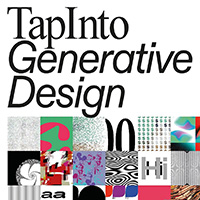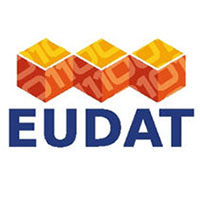Active in France since 2005, Alliés, of l’Alliance contre la faim, wished to reinvent its visual identity, previously associated with the distribution of food resources. In fact, the charity was responsible for coordinating and optimizing the various actions of French charities working to combat hunger. Alliés approached Landor to reconfigure its logo to better express the charity’s true mission.
The National September 11 Memorial & Museum is the nonprofit organization responsible for operating and overseeing the memorial being built at the World Trade Center site, and for programming and raising funds. Landor first donated our strategic expertise to the Memorial & Museum in July 2007 as part of our annual founder’s-day celebration. Our entire New York office participated in a Brand Driver™ workshop on the organization’s behalf. Its leaders were so impressed with our ideas that they called on us again in February 2009.
Innovative design starts with a designer’s vision...
... exhibitors and visitors at INDEX understand that great design is much more than simply assembling, arranging or editing, it is something that is felt!
The merger of French Alcatel and American Lucent Technologies meant that the global leader of advanced communications services would be created. The company would be present in 130 countries with over 79,000 employees. Both companies were facing some negative perception issues in their markets— Europe and the U.S. respectively—and the merger was the perfect synergy, offering the opportunity to develop a bigger, more competitive, and differentiated offer. Landor was appointed to develop the company’s naming strategy and corporate identity based on an existing positioning.
Proprietary bread brands in Australia face a difficult environment because the supermarket bread category is dominated by private label. Price competition is fierce, and consumers shop in a repertoire of brands driven by price promotions. Fast-moving consumer goods brands are increasingly forced to play in top-end mainstream and premium segments; for example, competitor Helga’s was the top-selling bread with 63 percent value market share of the premium segment. In February 2009, George Weston Foods (GWF) engaged Landor to undertake an analysis of its existing portfolio of breads, as well as the overall bread category, in order to identify an opportunity for a bread brand with a distinct and appealing position.
Prior to its launch in 2008, Aswaaq, a Dubai supermarket, conducted an in-depth audit of the local retail landscape. It learned that although the emirate’s other supermarket giants had a strong foothold in the market, most had difficulty making an emotional connection with customers. Most supermarkets offered the same products without a truly differentiated shopping experience. Additionally, Dubai has very unique cultural characteristics based on a blend of its own national heritage, ethnic diversity, and a strong international influence. Aswaaq aimed to offer a more community-minded supermarket catering to the diverse needs of a unique population.
Athenos, owned by Kraft Foods, has always been a leader in the specialty deli aisle with a strong reputation for quality. However, competition grew stiff in the cheese, hummus, and pita chip categories, and the brand seemed stuck in the past. The visual expression of the Athenos heritage felt dated, old world, and out of synch with the freshness and quality of its products.
Austrian Airlines Group is made up of three carriers, Austrian Airlines, Tyrolean Airways, and Lauda Air, serving 123 destinations in 64 countries on five continents. For over 40 years, national leader Austrian Airlines has presented itself as a progressive, future-oriented airline whose major aim was to deliver its clients best quality, security, and service.
Pacific Corporation is a well-established institution in Korea that has played a pivotal role in setting standards for, and defining, the local beauty industry. It dominates the Korean market with a wide range of brands targeting different age groups and utilizing various distribution channels.
The Scotch-Brite brand, well known for inventing the double-face sponge (with sponge face and scrub face), was recognized for its efficiency and durability, but suffered from an austere and technical image. Over the years, the brand lost market share and its leadership role as competitors built images around innovations and strong communications. Scotch-Brite asked Landor to reposition the brand as a leader in its category.





















